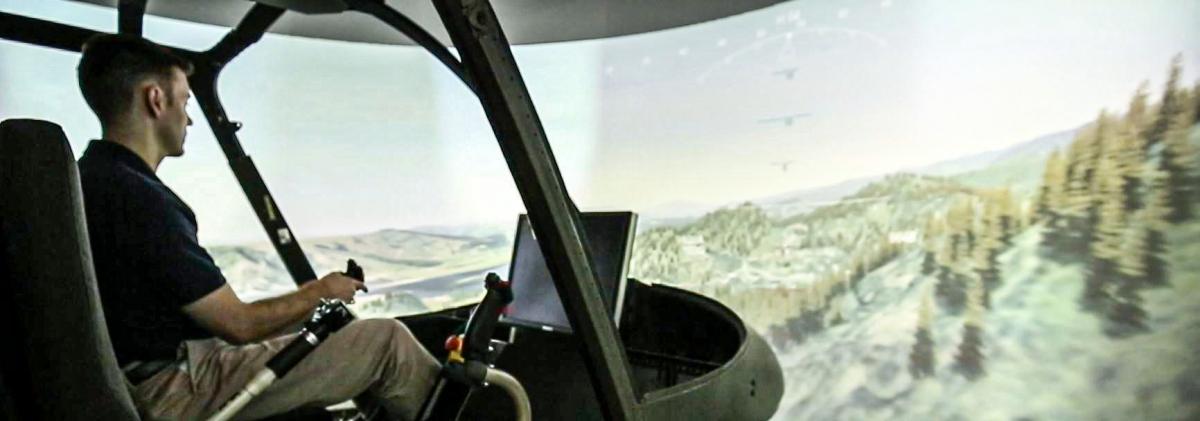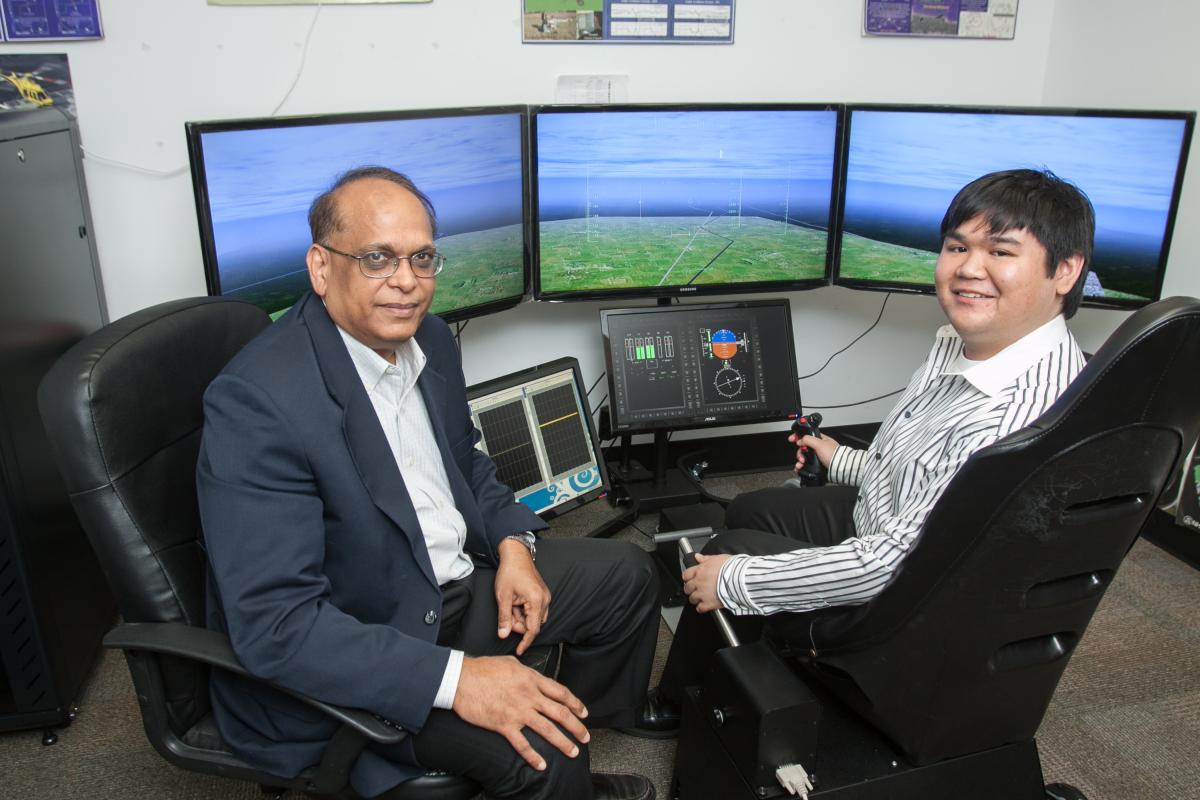Vertical Lift and Urban Air Mobility

Above, an Aerospace Engineering School graduate student takes to the helm of a rotorcraft in our Rotorcraft Simulation Lab.
The Daniel Guggenheim School of Aerospace Engineering supports multiple faculty and research efforts in the area of vertical lift and urban air mobility. It starts with vertical lift - also known as vertical flight - an area that encompasses the design, innovation, and testing of a class of vehicles (VTOL) that can take-off and land vertically without a runway. This includes traditional rotorcraft (helicopters and tilt rotors) as well as unmanned air vehicles (UAVs). The rapidly developing technology supporting vertical lift has given rise to urban air mobility (UAM) - the use of electric vertical takeoff and landing (eVTOL) aircraft to economically transport people and cargo in and around urban and regional locales that would normally be served by cars, buses, or trains alone.
Vertical lift vehicles are unique and their engineering complex. Some portion of their propulsion is provided by a rotating system, such as a rotor, proprotor, ducted fan, etc. Many new designs include hybrid fixed-rotary wing configurations that include revolutionary technologies.
Right now, there is a burgeoning demand for technically savvy, rigorously educated engineers to meet the rapidly expanding opportunities in civilian and military transport. All engineering disciplines can contribute to this demand, which is particularly acute in the areas of aeromechanics (core AE subjects), autonomy, human-machine interaction (HMI), machine learning, avionics, electric propulsion, and data analytics.
Georgia Tech has a long history of education in vertical flight through the Vertical Lift Research Center of Excellence (VLRCOE), a multi university program that has been located at Tech for more than three decades. In 2019, VLRCOE was recognized nationally as a Vertical Flight Heritage Site by the Vertical Flight Society, a world-wide professional and technical society. Students who wish to focus in this area should plan to take the rotorcraft design course sequence and consider joining the Georgia Tech chapter of the Vertical Flight Society.
An undergraduate certificate in vertical lift is under consideration by Georgia Tech for implementation during the 2020-2021 academic year.
